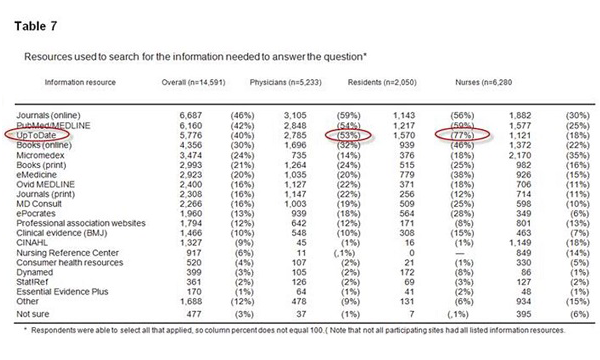Effectiveness of a clinical knowledge support system for reducing diagnostic errors in outpatient care in Japan: A retrospective study
Shimizu T., Nemoto T., Tokuda Y. Effectiveness of a clinical knowledge support system for reducing diagnostic errors in outpatient care in Japan: A retrospective study. International Journal of Medical Informatics 109 (2018): 1-4. doi: 10.1016/j.ijmedinf.2017.09.010
To evaluate the effectiveness of UpToDate for reducing diagnostic errors, the study authors retrospectively identified 100 patients who visited an outpatient department in a community-based hospital from July 2014 to June 2015. Half the patients were seen by physicians equipped with UpToDate and half were seen by physicians without UpToDate access. They compared diagnostic error rates between the two groups.
- The diagnostic error rate for the patients seen by physicians equipped with UpToDate was 2%.
- The diagnostic error rate for patients seen by physicians not equipped with UpToDate was 24%.
- Multivariate logistic regression analysis showed that error rate reduction was significantly associated with exposure to UpToDate with an odds ratio of 15.21 (95% CI 1.86–124.36).
- The results demonstrated the effectiveness of UpToDate for the prevention and reduction of diagnostic error.

